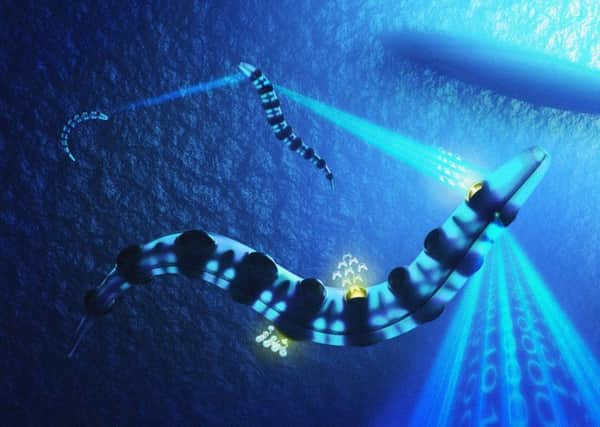Futuristic submarine designs give glimpse into the future


The ideas unveiled include a crewed mothership shaped like a manta ray, unmanned eel-like vessels equipped with sensor pods which dissolve on demand to avoid enemy detection and fish-shaped torpedoes sent to swarm against enemy targets.
Young British scientists and engineers from UKNEST, a not-for-profit organisation which promotes science, engineering and technology for UK naval design, took part in the challenge.
Advertisement
Hide AdAdvertisement
Hide AdA Royal Navy spokesman said: “The UK’s brightest and most talented young engineers and scientists came up with the designs after being challenged by the Royal Navy to imagine what a future submarine would look like and how it would be used to keep Britain safe in decades to come.”
Commander Peter Pipkin, fleet robotics officer, added: “With more than 70 per cent of the planet’s surface covered by water, the oceans remain one of the world’s great mysteries and untapped resources.
“It’s predicted that in 50 years’ time there will be more competition between nations to live and work at sea or under it. So it’s with this in mind that the Royal Navy is looking at its future role and how it will be best equipped to protect Britain’s interests around the globe.
“Today’s Royal Navy is one of the most technologically advanced forces in the world and that’s because we have always sought to think differently and come up with ideas that challenge traditional thinking.
“If only 10 per cent of these ideas become reality, it will put us at the cutting edge of future warfare and defence operations.”
The project, named Nautilus 100, was set up to mark the 100th anniversary of the launch of the USS Nautilus, the world’s first nuclear-powered submarine.
Rear Admiral Tim Hodgson, the Ministry of Defence’s director of submarine capability, said: “The pace of global innovation is only going to increase, so for the UK to be a leader in this race it needs to maintain its leadership in skills and technology.”